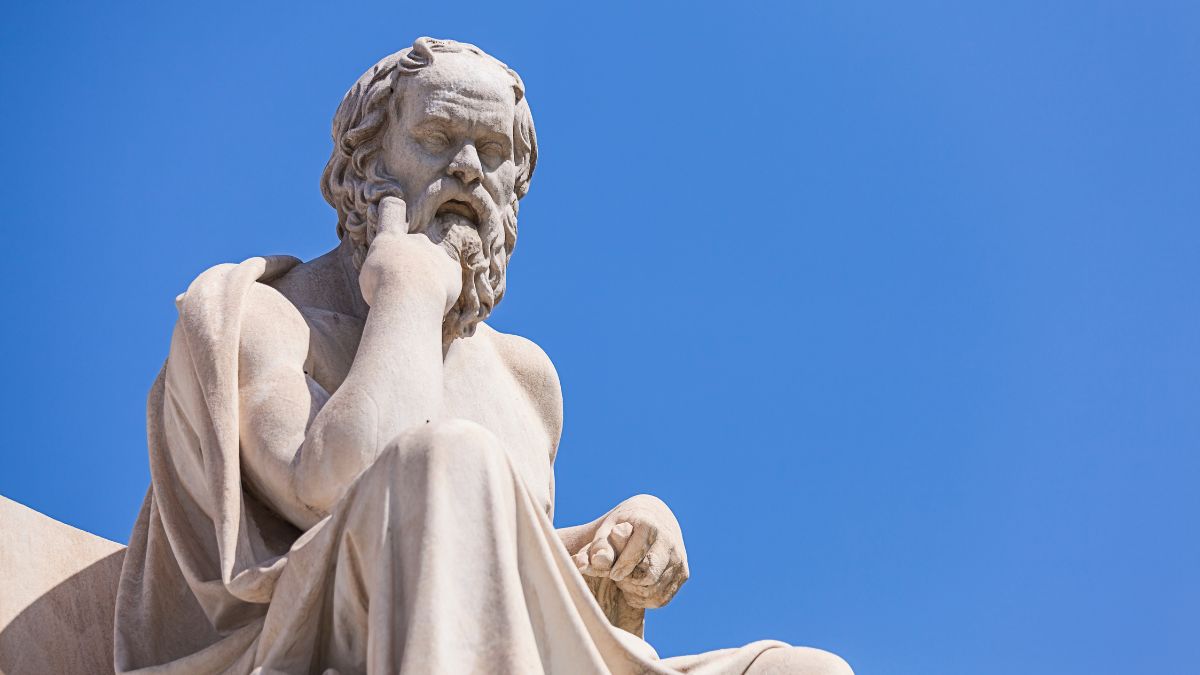Kalidasa (Classical Sanskrit Literature)
Kalidasa (Classical Sanskrit Literature)
Socrates (Classical Philosophy)

Socrates (Classical Philosophy)
In the annals of human history, few figures have stirred the soul and electrified the mind as profoundly as Socrates, the sage of classical Athens. His story is not just a tale of wisdom; it is an odyssey of the human spirit, a journey into the very heart of philosophy.
Imagine the bustling streets of Athens, a cradle of civilization where the air hummed with the promise of enlightenment. In this vibrant tapestry of ancient life, there walked a man unlike any other. Socrates, with his penetrating gaze and unkempt appearance, was a figure of intrigue and inspiration. He did not pen epic poems, nor did he carve grand statutes, but his legacy was carved in the minds of men.
Socrates was a philosopher, yes, but more than that, he was a seeker of truth, a relentless questioner. His method, now immortalized as the Socratic Method, was simple yet revolutionary. He engaged his fellow Athenians in dialogues, probing them with questions, leading them to question their own beliefs and assumptions. This was not a mere intellectual exercise; it was a quest for the essence of virtue, justice, and knowledge.
One cannot help but be awestruck by the audacity of his thought. In an era where mythology and superstition reigned, Socrates dared to challenge the status quo. He asked questions that made the mighty uncomfortable and the common man introspective. “What is the right way to live?” “What is true happiness?” “What does it mean to be just?” These were not just abstract queries. They were the very questions that stir the soul of humanity.
Socrates’ life was a testament to his philosophy. He lived modestly, eschewing material wealth for the richness of thought. His conversations in the marketplaces and public squares were not for gold or glory but for the pure love of wisdom. And it was this uncompromising devotion to truth that led to his tragic yet heroic end.
The Athenian democracy, threatened by his challenging ideas, charged him with impiety and corrupting the youth. In his trial, Socrates stood firm, unwavering in his beliefs. His defense, as recorded by his student Plato, was not just a plea for his life, but a profound statement on the nature of justice and the duty of a philosopher. He famously declared that “an unexamined life is not worth living.”
Socrates chose death over exile, drinking the hemlock with a calmness that echoed his lifelong commitment to his ideals. In his death, he became immortal, a martyr of philosophy. His spirit, his relentless questioning, and his fearless pursuit of truth continue to resonate through the ages.
Socrates, the simple Athenian who walked barefoot and asked questions, changed the world. He laid the foundation for Western philosophy, influencing countless thinkers from Plato to the modern age. His life and teachings stand as a beacon of critical thinking and intellectual courage.
In contemplating Socrates, one cannot help but feel a sense of wonder. His legacy is not just in the ideas he left behind, but in the spirit of inquiry he kindled. He reminds us that to think, to question, and to seek truth is the essence of being human. In the vast expanse of history, Socrates stands as a towering figure, a reminder of the power of a single, inquisitive soul to ignite the flame of knowledge and wisdom.